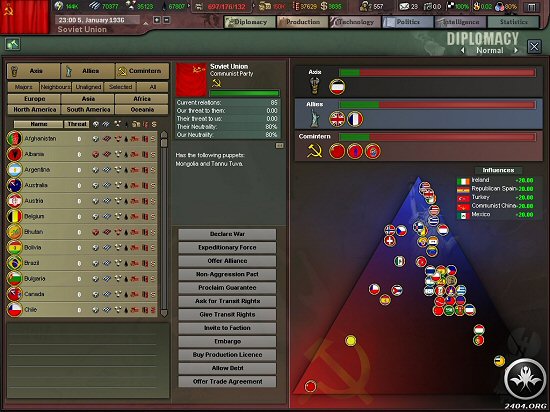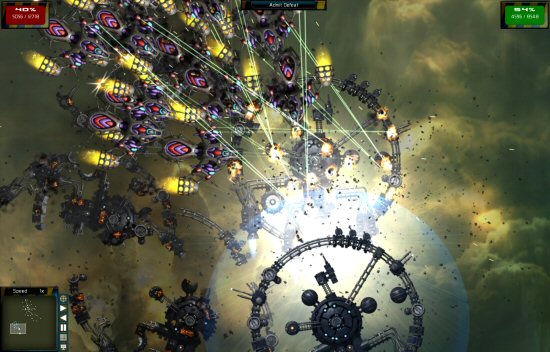Having been kicked from a game of red orchestra, for no explicable reason (I presume another of many bugs), I fired up Hearts Of Iron 3, to give it another go. I lasted less than 1 hour of game time (5 minutes of real time), and quit in frustration. The game is, in my humble opinion, a design train-wreck of epic proportions, despite being a game production miracle of awe inspiring proportions.
The older and more experienced I get, the more I understand Peter Molyneux. That probably amuses some people…
I remember people giving him a lot of stick about wanting to simplify combat to just one button. I agree, that’s a bit extreme, but the direction is possibly the right one. game designers, especially very insular ones with no hobbies or interests outside games, tend to go way too far in the direction of over-complexity and over features. The result is a game like HOI 3, a game which absolutely bludgeons you with exceptional levels of micro-management and geekery. In my view, Men of War does the same thing. If I can control what ammo is used, what target engaged, what stance is adopted, and what hat is worn by my troops, and even take direct control of them, do NOT give me 150 of them in one mission. That just INSISTS that I will spend most of the battle frustrated, panicked and annoyed. The same is true with HOI3. If you must add diplomacy to the game, please ignore Costa Rica, Guatemala, Andorra, and other countries whose impact on world War 2 was at best marginal. Do you really want to spend world war 2 micromanaging the rate at which you sell electricity to Nicaragua? Really?
 Buying production rights from Bhutan, is not something spielberg will make a movie about any time soon.
Buying production rights from Bhutan, is not something spielberg will make a movie about any time soon.
The usual game-designers excuse for this behavior, to people who complain (like me) is that there are ‘AI-managers’ that you can switch on to handle the tedious stuff. That is a horrible sticking plaster over a gaping wound. Do not tell me that people who enjoy complex turn-based strategy games are happy to turn over some decisions to an AI manager. We are not. We are tyrants and megalomaniacs who want TOTAL control over our universe. We don’t want to admit to anyone, even ourselves, that we are overwhelmed and giving control over something to someone else. I would rather not play HOI3 at all, than play with most of the game being played by the AI. I don’t boot up my PC so the AI can enjoy itself. Ship me a simpler game, that uses less than 800MB of RAM before the menu screen, please…
This, in essence, is part of the rationale behind GSB. GSB does not pretend you can control 300 starships in a complex battle. it admits you can’t, and thus doesn’t make it an option. Some people hate it. Over 100,000 enjoyed it enough to buy it, so I can’t be the only person with this point of view.
 Controlling all the lasers would be frustrating and hard work, so GSB doesn't make it an option
Controlling all the lasers would be frustrating and hard work, so GSB doesn't make it an option
A company that really *gets* this, is popcap. In game design terms, their products are absolutely awesome. I may not like the styling, or the subject matter, but they know how to boil things down to the bare minimum required to capture a particular feeling. I *want* to feel like I am Winston Churchill, leading the British empire to ultimate victory over the Nazis. The key is, I want to FEEL like I am doing it, not actually do it. I don’t want to give over my life to worrying about the diplomatic situation in pakistan and whether or not the armor plating on the decks of the 23rd oil-transport flotilla that goes from Cuba to Portsmouth is sufficient. Churchill did that because it was his full time job, a matter of life or death, and a neccesity ( and he farmed stuff like that out to underlings, anyway). This isn’t the case when you sit down to play a PC game. You don’t have to find a quiet spot in combat during call of duty to go take a crap. Sometimes, it’s a good idea to leave out the boring stuff.
You might think there are not enough complex strategy games for the PC, and maybe you are right. The problem I have is that we have Popcaps games, and then Hearts Of Iron 3. There isn’t enough stuff in between. I’m trying to fill that gap.